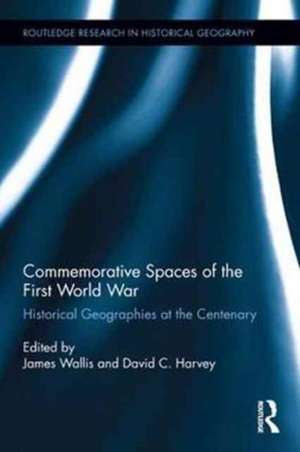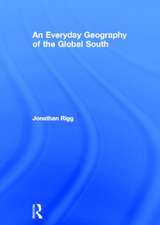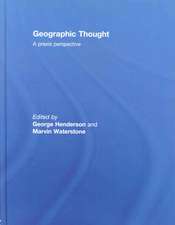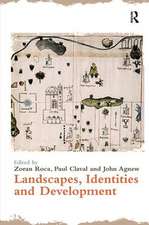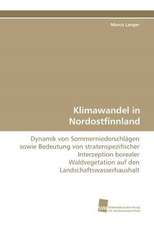Commemorative Spaces of the First World War: Historical Geographies at the Centenary: Routledge Research in Historical Geography
Editat de James Wallis, David C. Harveyen Limba Engleză Hardback – 2 aug 2017
This book explores the War’s impact in more unexpected theatres, blurring the boundary between home and fighting fronts, investigating the experiences of the war amongst civilians and often overlooked combatants. It also critically examines the politics of hindsight in the post-war period, and offers an historical geographical account of how the First World War has been memorialised within ‘official’ spaces, in addition to those overlooked and often undervalued ‘alternative spaces’ of commemoration.
This innovative and timely text will be key reading for students and scholars of the First World War, and more broadly in historical and cultural geography, social and cultural history, European history, Heritage Studies, military history and memory studies.
| Toate formatele și edițiile | Preț | Express |
|---|---|---|
| Paperback (1) | 416.22 lei 6-8 săpt. | |
| Taylor & Francis – 5 mar 2019 | 416.22 lei 6-8 săpt. | |
| Hardback (1) | 1000.27 lei 6-8 săpt. | |
| Taylor & Francis – 2 aug 2017 | 1000.27 lei 6-8 săpt. |
Din seria Routledge Research in Historical Geography
-
 Preț: 328.15 lei
Preț: 328.15 lei -
 Preț: 325.35 lei
Preț: 325.35 lei -
 Preț: 304.70 lei
Preț: 304.70 lei -
 Preț: 432.29 lei
Preț: 432.29 lei - 17%
 Preț: 259.98 lei
Preț: 259.98 lei -
 Preț: 412.37 lei
Preț: 412.37 lei -
 Preț: 389.66 lei
Preț: 389.66 lei -
 Preț: 416.22 lei
Preț: 416.22 lei -
 Preț: 385.74 lei
Preț: 385.74 lei - 17%
 Preț: 259.98 lei
Preț: 259.98 lei - 17%
 Preț: 259.98 lei
Preț: 259.98 lei -
 Preț: 389.66 lei
Preț: 389.66 lei -
 Preț: 389.66 lei
Preț: 389.66 lei -
 Preț: 389.66 lei
Preț: 389.66 lei -
 Preț: 311.41 lei
Preț: 311.41 lei - 18%
 Preț: 1005.39 lei
Preț: 1005.39 lei - 18%
 Preț: 1000.27 lei
Preț: 1000.27 lei
Preț: 1000.27 lei
Preț vechi: 1219.84 lei
-18% Nou
Puncte Express: 1500
Preț estimativ în valută:
191.42€ • 196.04$ • 159.23£
191.42€ • 196.04$ • 159.23£
Carte tipărită la comandă
Livrare economică 18 martie-01 aprilie
Preluare comenzi: 021 569.72.76
Specificații
ISBN-13: 9781138121188
ISBN-10: 1138121185
Pagini: 264
Ilustrații: 52
Dimensiuni: 156 x 234 x 24 mm
Greutate: 0.45 kg
Ediția:1
Editura: Taylor & Francis
Colecția Routledge
Seria Routledge Research in Historical Geography
Locul publicării:Oxford, United Kingdom
ISBN-10: 1138121185
Pagini: 264
Ilustrații: 52
Dimensiuni: 156 x 234 x 24 mm
Greutate: 0.45 kg
Ediția:1
Editura: Taylor & Francis
Colecția Routledge
Seria Routledge Research in Historical Geography
Locul publicării:Oxford, United Kingdom
Public țintă
Postgraduate and UndergraduateCuprins
1. Conflicting spaces – Geographies of the First World War Part 1: Rethinking, and Looking Beyond the Front Line 2. Congested terrain: contested memories. Visualising the multiple spaces of war and remembrance 3. Remembering the anti-war movement: contesting the war and fighting the class struggle on Clydeside 4. The First World War in Palestine: biographies and memoirs of Muslims, Jews, and Christians 5. Malta in the First World War: an appraisal through cartography and local newspapers 6. Asia’s Great War: A Shared Experience Part 2: Commemorative Spaces 7. The art of war display – the Imperial War Museum’s First World War galleries, 2014 8. Commemorative cartographies, citizen cartographers and WW1 community engagement 9. Affective ecologies of the post-historical present in the Western Front dominion war memorials 10. Local complications: Anzac commemoration, education and tourism at Melbourne’s Shrine of Remembrance 11. ‘To leave a wooden poppy cross of our own’: First World War battlefield spaces in the era of post-living memory 12. Witnessing the First World War in Britain: new spaces of remembrance 13. Reflecting on the Great War 1914-2019: How has it been defined, how has it been commemorated, how should it be remembered? 14. Afterword: The mobilization of memory 1917-2014
Descriere
This is the first book to bring together an interdisciplinary, theoretically engaged and global perspective on the First World War through the lens of historical geography. This book explores the War’s impact in more unexpected theatres, blurring the boundary between home and fighting fronts, investigating the experiences of the war among civilians and often over-looked combatants. The book also critically examines the politics of hindsight in the post-war period, and offers an historical geographical account of how the First World War has been memorialised within ‘official’ spaces as well as many of the ‘alternative spaces’ of commemoration that are often overlooked and undervalued.
